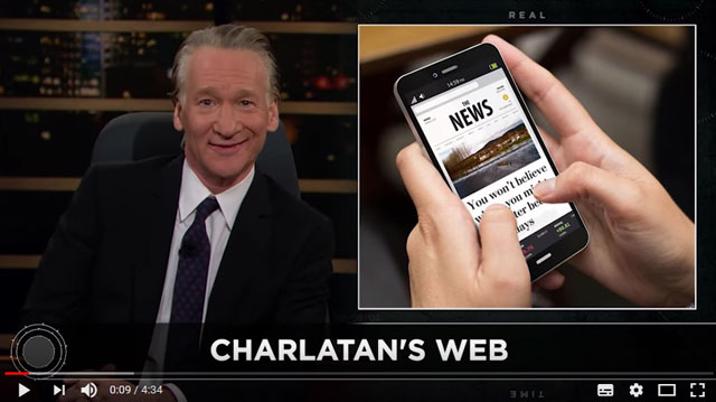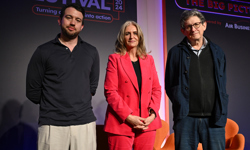
I’ve become a fan of the late-night talk show circuit on American TV, which I catch up on via YouTube. For those like me who are not entirely convinced that Donald Trump is as great a president as he says he is, then the musings of Stephen Colbert, Seth Meyers, Bill Maher, Trevor Noah and John Oliver are much needed therapy. Laughter is a good antidote to despair.
Last week, Bill Maher had mainstream journalists in his sites and it was a bit painful to watch because there was some truth in what he had to say.
“So much that passes for today’s journalism is anything but,” he said; “no wonder that ‘fake news’ resonates with Trump fans, because so much of it is fake.”
Is he being fair? There are four common types of fakery; outright falsehoods (“Pope endorses Trump”), partisan spin and advocacy, overhype (stories starting with “You won’t believe”) and social media sourced non-stories (for instance, the “furore” over the Versace dress worn by Jennifer Lawrence in the photo call for Red Sparrow, which was widely reported by “esteemed news organisations”), where something becomes a story by virtue of a few angry tweets.
Generally speaking, I would say that the press is not guilty of the first, frequently guilty of the second (certainly at national level) and the third and increasingly guilty of the fourth.
In his piece, Maher focused on overhype and social-media inspired non-stories, accusing journalists of peddling an “endless stream of controversies that are not controversial and outrages that aren’t outrageous.” Journalists were, he concluded “ignoring their sacred duty of informing citizens of what’s important”.
Harsh, perhaps, but the short clip is worth watching. Credibility, whether you’re a purveyor of hard news or celebrity gossip, has got to be our sine qua non.












